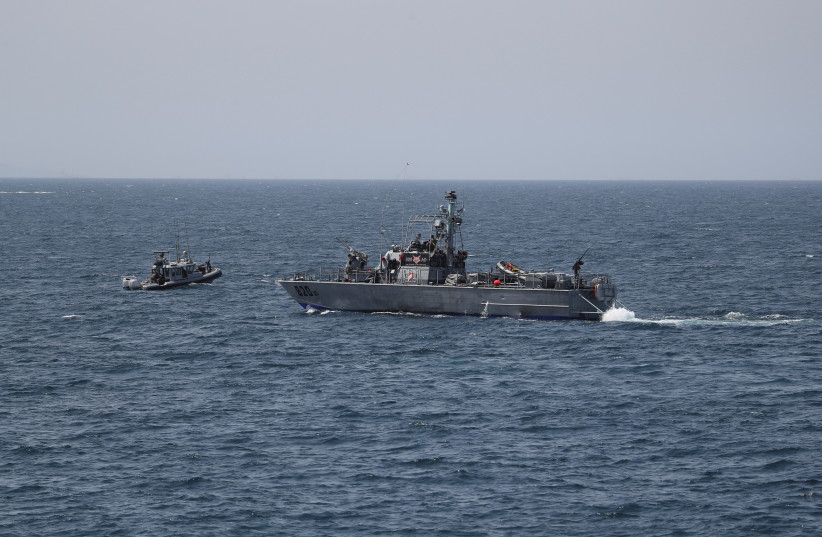Hezbollah leader Hassan Nasrallah said on Friday that ongoing negotiations between world powers regarding the potential return to a nuclear agreement with Iran would not prevent Hezbollah from pressing its demands regarding Lebanon’s “rights” in a maritime deal off the coast. In essence, he is reserving the right for the terrorist group to take over Lebanon’s foreign policy and continue threatening Israel and thus veto any chance of calm and peace in the region.
Hezbollah’s leader made these comments because he is concerned that some will believe there is a quid pro quo for a return to the Iran deal. If Western countries come to an agreement with Iran, it could be linked to Hezbollah. This is because Hezbollah is one of its powerful allies and proxies. The recent flare-up in the confrontation between Israel and Palestinian Islamic Jihad is also an example of this proxy phenomenon, where Iran negotiates with one hand and uses another hand to stir up tension and violence.
In the lead-up to the Iran deal of 2015, it was clear that the US pivoted from any crackdown on Hezbollah’s operations and the Syrian regime in order to give Iran room to maneuver. In short, Iran trades the “right” of its proxies to increase their attacks for pressuring Western governments into nuclear blackmail and a “deal” that will avoid conflict.
That is clearly what happened in 2015 because the Assad regime quickly rebooted itself, with Russian backing, and went on to crush the Syrian rebels in 2016-2018. Iran took over swaths of Iraq as well, leading to the 2017 confrontation with the Kurds after the Kurdistan referendum. Iran moved missiles and drones to the Houthis beginning in 2015.
Tehran also continues to increase the power of Hezbollah, which has a role in the Golan and has sought to increase its stranglehold over Lebanon. The 2015 deal helped give more breathing space to all these forces, forming an arc of 3,000 miles from Hezbollah’s strongholds via Syria to Iraq and Yemen.
Hezbollah’s leader is thus saying that the issue of the maritime disputes between Lebanon and Israel, which could be solved if not for its blackmail of the Lebanese government, is not part of the new Iran talks. The terrorist group is reserving the right to increase tensions over the Karish gas field and other issues. “Hezbollah Secretary-General Hassan Nasrallah stressed that ‘the issue of maritime borders, the Karish field, oil and gas, and Lebanese rights has nothing to do with the nuclear agreement,’” pro-Iran aL-Mayadeen media says.
“In the event that Lebanon does not obtain its rights, which the Lebanese state demands, we are going to escalate, whether the nuclear agreement is signed or not,” Nasrallah said. “The eye in Lebanon should be on Karish and the Lebanese borders – and on the American mediator, who is still wasting time, which has become tight.”

Nasrallah's threat against Israel
“[If] Lebanon does not get the rights that the Lebanese government demands, whether the nuclear agreement is signed or not, we will move towards intensifying the response (to the theft of Lebanon's resources by the Zionist regime).”
Hezbollah leader Hassan Nasrallah
He made threats about cutting off any “hand” that harms Lebanon’s rights to its wealth, referring to Israel. Hezbollah has used drones in the past to try to threaten energy installations off the coast and it is clear that Nasrallah wants to continue these provocations.
If “Lebanon does not get the rights that the Lebanese government demands, whether the nuclear agreement is signed or not, we will move towards intensifying the response" to the theft of Lebanon's resources by the Zionist regime, Nasrallah said, according to Iran’s Tasnim News.
It is clear from these reports and statements that Hezbollah is laying the groundwork for a kind of “casus belli” that would let it resume threats and attacks on Israel. The head of the IRGC similarly made comments claiming that the recent conflict between Israel and Islamic Jihad had shown that there was “no safe place” for Israel in the region.
